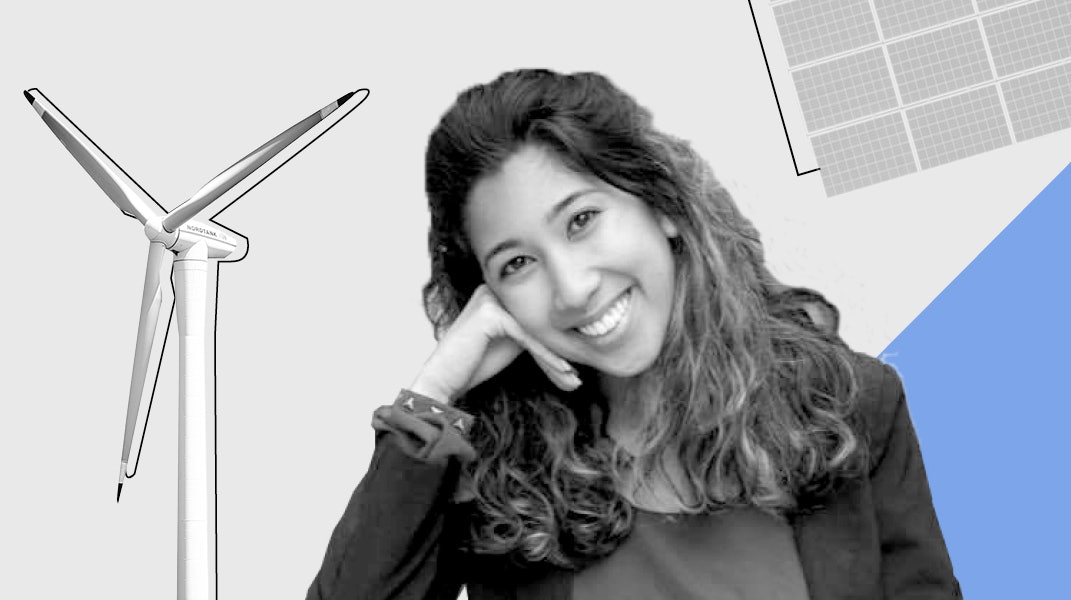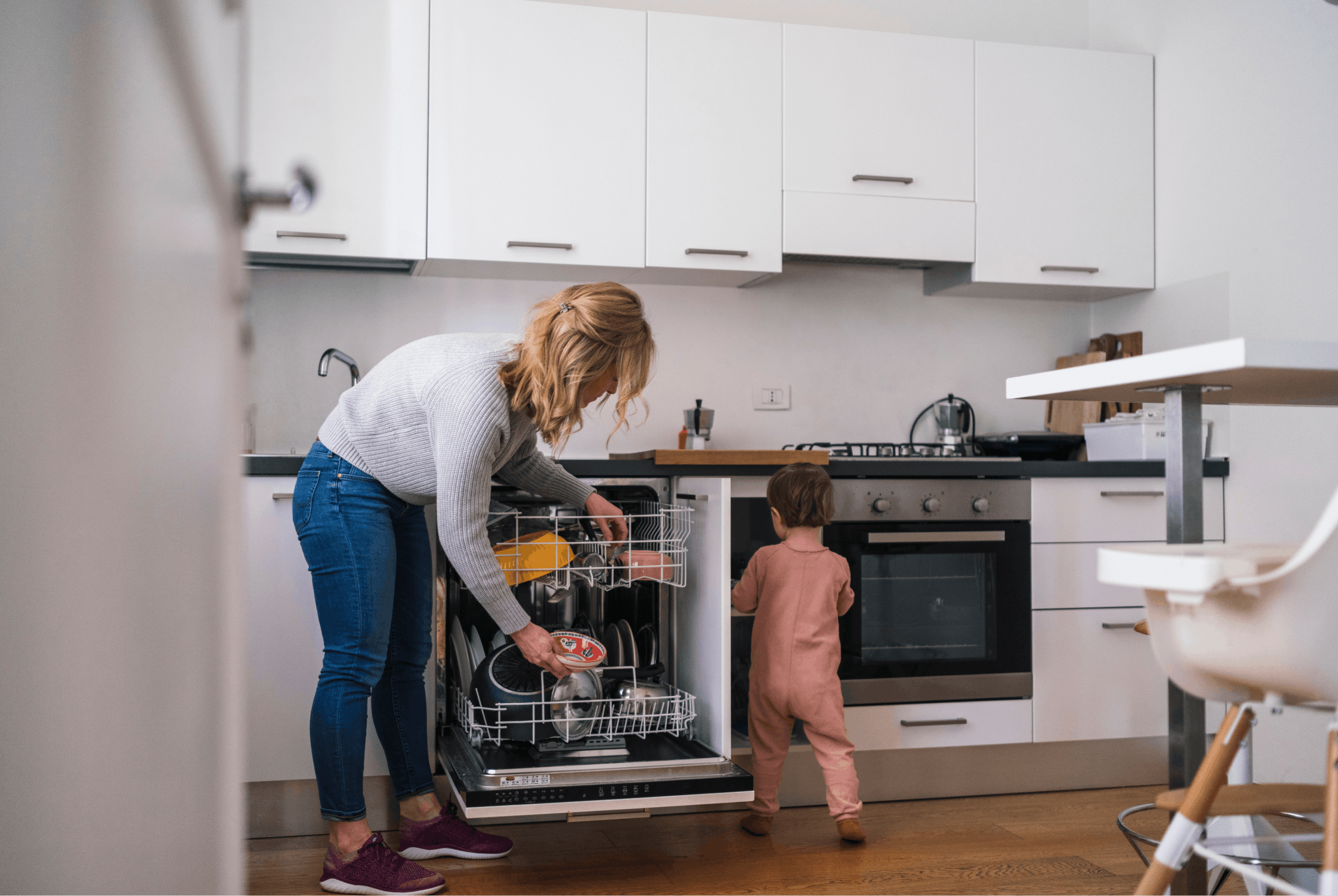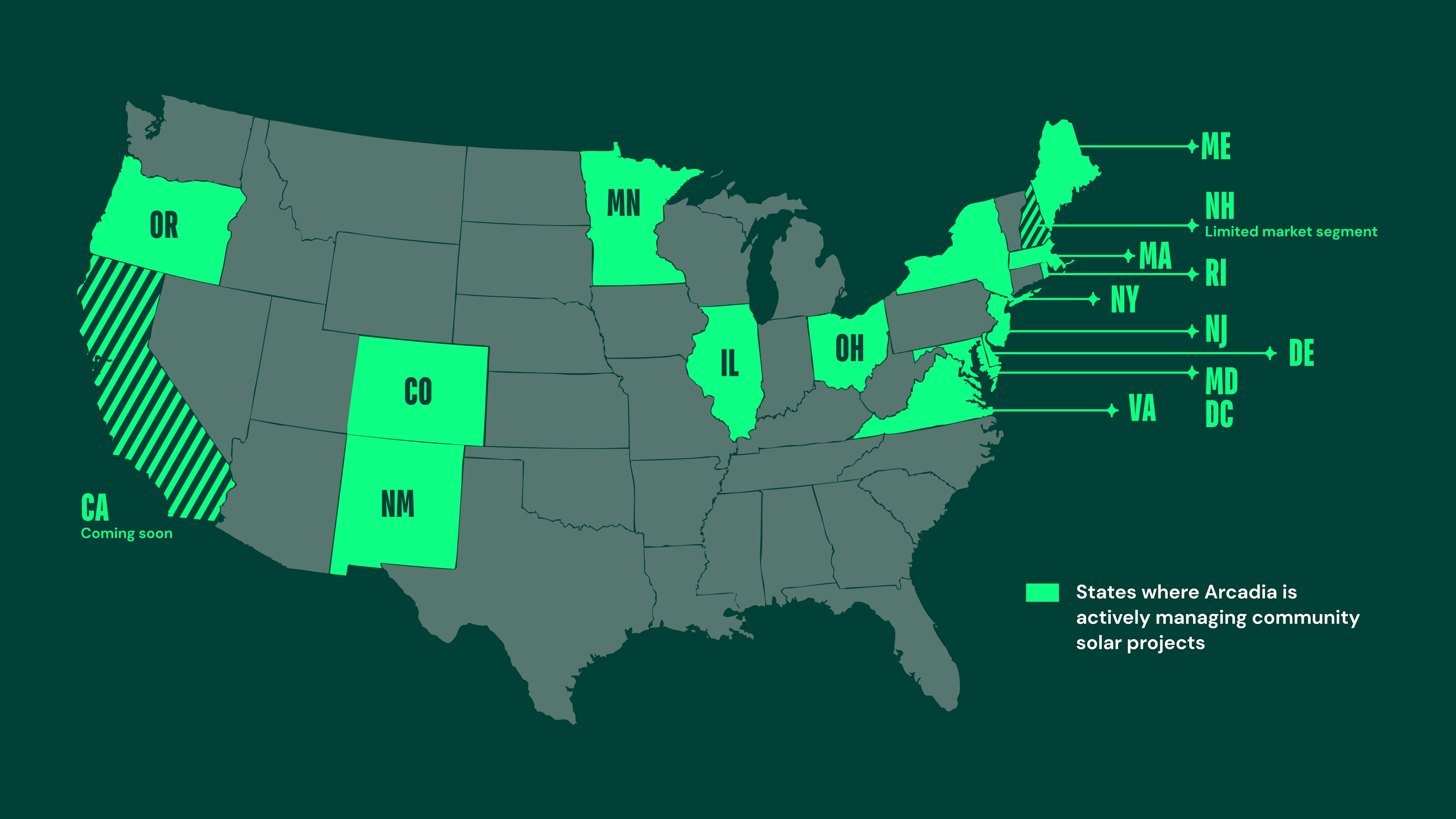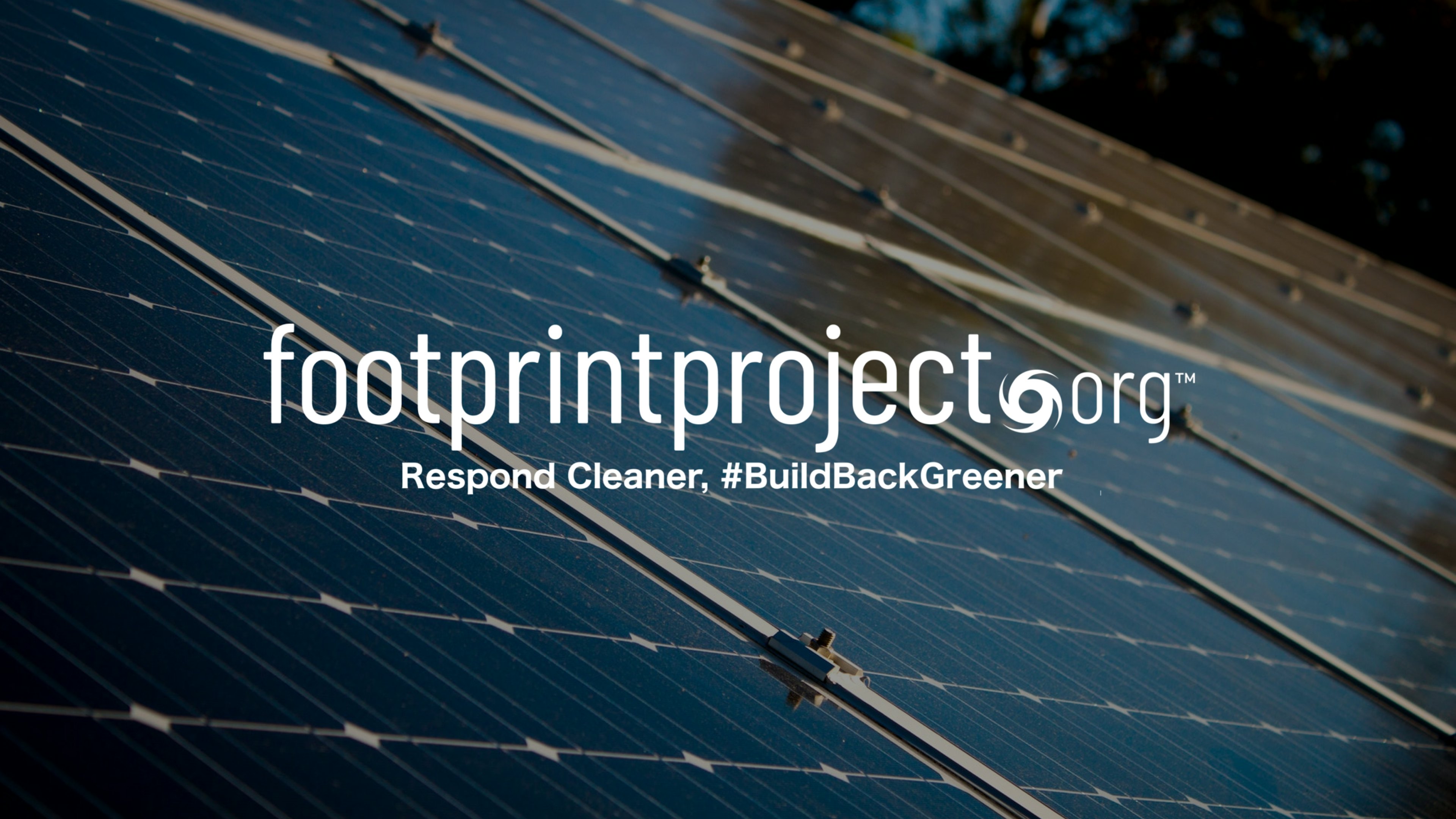Q&A with Kristy Drutman, founder of Brown Girl Green

Power Dynamics is an interview series highlighting the work, ideas, and voices of advocates working to build a clean energy future that is accessible, workable, and just for all.
Kristy Drutman is no stranger to educating people about climate change. For years, Drutman has been sharing her climate journey with friends and family on social media. “People [saw me as] the environmental person that they could get information from,” she says.
Three years ago, she went all in and started Brown Girl Green, a media platform dedicated to educating people about both the climate crisis and diversity and inclusion within the climate movement. Drutman works with a team of Black and people of color creatives to create digital content that uplifts the voices of Black, Indigenous, and people of color (BIPOC) activists working on the front lines of the climate crisis.
Environmentalism is not just fighting the big, mean corporate power of the fossil fuel industry. It's also reclaiming our power to protect and restore our communities to be in better harmony with nature.
A Filipina-American, Drutman felt a disconnect when she looked around her environmental studies classes at the University of California, Berkeley and didn’t see many other people who looked like her. Now, her platform is all about balance. “I try to be very honest that I’m not from a frontline community and don’t want to take up that space,” she explains. “I try to find the balance between ‘I need to learn and collaborate with people who come from these communities’ with messaging to mobilize people that come from more my background, and get them to think deeper as people who have privilege.”
Drutman also tries to create more connections and opportunities for other climate activists of color through the Intersectional Environmentalist platform, where she serves on the leadership council. The group came together last summer, and much of their work is focused on how to hold sustainable brands and companies accountable to their diversity promises. Drutman works on mentoring other young people of color who want to be in the environmental and sustainability fields.
She recently spoke with us about her work, advice for other young people who want to get involved in climate activism, and the best ways to support frontline communities.
Our conversation has been edited for clarity and length.
Arcadia: When did you realize that you wanted to be an environmental activist, and that centering voices of color in that space was particularly important?
Kristy Drutman: My lightbulb moment was realizing what was happening in the Philippines with Typhoon Haiyan. It was early on in college. I had always known about climate change, and that was why I decided to study environmental science and policy. But once I found out that this typhoon hit the Philippines — which is my family’s home country — and that it was devastating so many people who live there, it [became] a lot more personal. I was like, "Why aren't there more discussions about this in the news and the mainstream media?"
I just kept feeling all these disconnects, and it made me realize that the biggest disconnect of all was that there were not a lot of BIPOC leading these conversations around the climate fight, even though those are the people who are on the front lines doing all the work to address these issues. I really wanted to figure out how I could bridge the gap on that.
How do you help other people make that personal connection if their lived experience is not on the front lines of the climate crisis?
Since I started doing work on Brown Girl Green almost three years ago, a lot of it was article shares [and] talking about my own story and what I was learning along the way. Even before I started Brown Girl Green, I was just naturally sharing how I cared about the environment on my social media channels. I was learning and trying to find a way to bring [people] into the conversation that felt more accessible — and by "accessible," I mean building a relationship with people, not just throwing a bunch of information at them.
People don't recognize how powerful they are. People don't understand how powerful the internet is, how powerful their voices are.
You describe your work as "changing the story of what it means to be an environmentalist." Can you unpack that a little bit?
For me, "environmentalism" is such a charged word. If you Google "environmentalism," you're not going to see a lot of Black and Brown people. You're going to see white people bird watching and using zero-waste products, which is fine — we love it, we stan, I’m glad that exists. But it's like, "OK, but that's going to get what, 2% of the population to care about what you're advocating for?"
I want to change what environmentalism is because I think it's something that can be redefined in how people embrace the cultural nuance of their environmentalism and learn from frontline communities, which I think is different than just consuming the news. It's actually hearing these people's stories. Environmentalism is not just fighting the big, mean corporate power of the fossil fuel industry. Yes, that's really important, but it's also reclaiming our power to protect and restore our communities to be in better harmony with nature, which requires a lot of unlearning and a lot of education.
What are the biggest things that people need to unlearn?
Definitely that individuals don't have power. There are a lot of statistics that companies are the ones that ultimately have the power. And yes, they're definitely the ones that are causing a lot of harm and pollution. I’m not denying that. But I think people don't recognize how powerful they are. People don't understand how powerful the internet is, how powerful their voices are. There's a lot of "Oh, we're screwed, it's too corrupt, the climate crisis is unwinding, there's nothing left we can do." People have to unlearn that for us to actually come up with solutions, figure out how to make plans for adaptation, and just have hard conversations with each other.
What does success look like for you? In five years, where do you hope we’ll be?
The biggest hope is that there are actual bills passed to establish that environmental justice matters and it's not just symbolic, that communities and state leaders and local leaders are going to be given money and budgets to make sure that BIPOC communities on the ground are actually being given the resources and support they need for a healthy and clean environment. We need a Green New Deal, but we also need actual, on-the-ground support of environmental justice, which requires people defining and actually developing legislation around what that is.
I don't want to be an activist only in my 20s; I want to be doing this kind of work my whole lifetime. And if that's the case, then I need to treat this as a marathon, not a sprint.
What do you think that on-the-ground support for environmental justice should look like?
I would say that a big part of it is just listening to the leadership of frontline community members and understanding what they need. I don't think it's a one-size-fits-all kind of a thing. It depends on the community and what their needs are, both financially and emotionally. Bringing more capacity and support to the fights that have already been going on is the most important thing. Instead of just starting your own organization or trying to act like you're the first person who's thought about environmental justice, it's actually going in and respectfully having conversations and learning from those people, and figuring out how you can help.
Self-care is a really important part of your work. Why do you see that as such an important aspect of being an activist, and why is it particularly important for environmental activists of color?
People get so caught up in eco-anxiety and then they feel they can't do anything. I just don't think that's productive or sustainable. I don't want to be an activist only in my 20s; I want to be doing this kind of work my whole lifetime. And if that's the case, then I need to treat this as a marathon, not a sprint. For me to view it like that, I have to figure out how I sustain my mental health. When you don't do that, then you burn out and you're no help to anyone.
What I realized, especially for young environmentalists of color, is that for a lot of us, we feel an extra pressure because we’re not just trying to be activists. As a woman of color, I’m trying to navigate the professional world or get a job, build a career, and that already presents so many barriers. On top of that, I’m doing a less-traditional job path. It's a lot to cope with. If there are any other young people of color out there who are like me, your family probably doesn't get what you're doing, you don't really have a support system, it's very isolating.
I don't ever want to have other young people go through what I went through [with burnout], and I want to remind people that we can't promote that kind of stuff because that's continuing to perpetuate extractive behavior that's not actually going to help us win anything.
What have you found that's been helpful in navigating that balance for mental health?
I would say my mentors. Also just stepping away from the work to be in nature here and there. That's a huge privilege that I have access to that other people don't, but when I can, I try to do that. I think also just building more intentional relationships with people. Getting to meet people and build community definitely has helped me a lot with feeling that there are people that are going to take things over if I need a break sometimes. When we think about activism or grassroots activism, we have to think about how it requires collaboration; it takes a lot of people to get these things accomplished.


